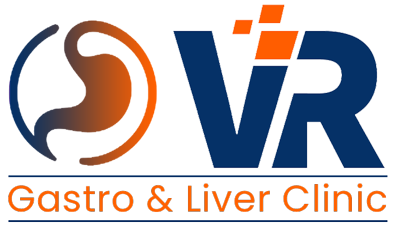Indigestion, also known as dyspepsia, is a common condition that affects millions of people worldwide. It is not a disease but rather a set of symptoms that can cause discomfort in the upper abdomen. Understanding the symptoms and causes of indigestion is crucial for managing and preventing this condition effectively.

What are the symptoms of indigestion?
Indigestion symptoms can vary from person to person but often include
Upper abdominal pain
One of the most common symptoms is pain or discomfort in the upper abdomen. This pain can range from mild to severe and may come and go
Bloating
Many individuals with indigestion experience a feeling of fullness or bloating in the stomach, even after eating a small meal
Heartburn
A burning sensation in the chest, known as heartburn, often accompanies indigestion. This occurs when stomach acid backs up into the esophagus.
Nausea
Feeling nauseous or even vomiting can be a symptom of indigestion, particularly after eating.
Burping and gas
Excessive burping and passing gas are common symptoms, often resulting from swallowed air or the breakdown of certain foods in the digestive system
Loss of appetite
Some people with indigestion may experience a reduced desire to eat due to the discomfort it causes
What are the causes of indigestion?
Indigestion can be triggered by various factors, including lifestyle choices, medical conditions, and certain medications. Here are some common causes
Lifestyle factors
- Diet: Consuming large meals, eating too quickly, or eating high-fat, spicy, or acidic foods can contribute to indigestion. Foods like citrus fruits, tomatoes, chocolate, and caffeinated beverages are known triggers
- Alcohol and tobacco: Both alcohol and smoking can irritate the stomach lining and lead to indigestion. Excessive alcohol consumption is a significant risk factor
- Stress and anxiety: Emotional stress and anxiety can affect the digestive system, leading to indigestion. Stress management techniques can help alleviate symptoms
- Eating habits: Irregular eating patterns, such as skipping meals or eating late at night, can disrupt the digestive process and cause indigestion
Medical conditions
- Gastroesophageal reflux disease(GERD): GERD is a chronic condition where stomach acid flows back into the esophagus, causing heartburn and indigestion. It is a common cause of persistent indigestion.
- Peptic ulcers: Ulcers in the stomach or small intestine can cause indigestion. These sores can be painful and are often exacerbated by certain foods and stress
- Gallstones: Gallstones can block the bile ducts, leading to indigestion and other digestive problems
- Gastritis: Inflammation of the stomach lining, known as gastritis, can cause indigestion. This condition can be caused by infections, long-term use of nonsteroidal anti-inflammatory drugs (NSAIDs), or excessive alcohol consumption
- Pancreatitis: Inflammation of the pancreas can disrupt digestion and lead to indigestion. Chronic pancreatitis is often associated with excessive alcohol use
Medications
Certain medications can cause or worsen indigestion, including
- NSAIDs: Nonsteroidal anti-inflammatory drugs, such as ibuprofen and aspirin, can irritate the stomach lining and cause indigestion
- Antibiotics: Some antibiotics can disrupt the balance of bacteria in the gut, leading to digestive issues, including indigestion
- Iron supplements: High doses of iron supplements can cause gastrointestinal discomfort and indigestion
Managing and preventing indigestion
Managing indigestion often involves making lifestyle changes and addressing underlying medical conditions. Here are some tips for preventing and alleviating indigestion
- Eat smaller, more frequent meals: Instead of consuming large meals, opt for smaller, more frequent meals to ease the digestive process
- Avoid trigger foods: Identify and avoid foods that trigger your indigestion. Keeping a food diary can help pinpoint specific culprits
- Limit alcohol and tobacco: Reducing or eliminating alcohol and tobacco use can significantly improve digestive health
- Manage stress: Practice stress-reducing techniques such as yoga, meditation, or deep breathing exercises
- Maintain a healthy weight: Excess weight can put pressure on the abdomen and worsen indigestion symptoms
- Stay upright after eating: Avoid lying down immediately after meals to prevent acid reflux and indigestion
- Consult a healthcare professional: If you experience persistent or severe indigestion, seek medical advice from the best gastroenterologist in vijayawada to rule out underlying conditions and receive appropriate treatment.
Understanding the symptoms and causes of indigestion is the first step toward managing and preventing this common digestive issue. By making informed lifestyle choices and seeking medical advice from the best acid reflux treatment doctor in vijayawada, individuals can find relief from indigestion and enjoy better digestive health.
Articles
- Celiac disease vs gluten intolerance
- Differences B/W Endoscopy & Colonoscopy
- What is colon cancer or colorectal cancer?
- How Your Gut Health Affects Your Whole Body
- Gas Pain in Chest: Causes, Treatment, and More
- How junk food affects liver health
- The role of probiotics and prebiotics in gut health
- What is indigestion or dyspepsia?
- Why is hydration so important for liver health?
- What are the 5 symptoms of liver disease in women?
- What does alcohol do to your body?
